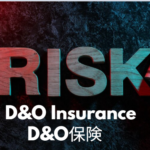Outside Director Lessons #7: If No D&O…Get It Yourself

In my view, at the end of 2006 I had been nominated in the Livedoor proxy materials for the December AGM without my agreement. It is true that I had been interviewed. Something like six weeks later I suddenly received an email asking if I was still interested in possibly being a director, and I had responded “I am still interested”. But I had never told anyone I had “decided”. But more importantly to me, two of the conditions I had clearly set forth, which were dependent on Livedoor itself taking action, had not been fulfilled at all: specification of compensation, and assurance of D&O insurance.
When I inquired about D&O insurance I was told that Livedoor had tried to get D&O insurance from more than 20 insurance companies in Japan, and had been turned down by everyone. When I asked, “did you hire an insurance broker to help you?” I was angrily told, “you are rude to say that. We have tried everything possible.” I told that person, “well, this is something that helps everyone on the board, not just me, and I am not joining the board unless there is D&O insurance in place on the day of the AGM.”
It was clear that I was heading into a storm, and while I of course had no intention to do anything wrong, anything could happen. And one of the things that one most needs D&O insurance for, is simply to cover lawyer’s fees if one is ever be hit with a spurious lawsuit. Without that, one could win in court, but still be left with huge legal bills.
So I then called up my contacts at Aon (an insurance broker) and Chubb Insurance, and told them the situation. Because I would be joining the board, and the other independent directors were generally reputable people, Aon agreed to immediately collect information and compile an underwriting report on the company’s new board and its internal practices, to show to foreign insurance companies and try to find one that might be willing to provide insurance coverage.
At that point there was less than three weeks left to go until the AGM. A whirlwind of information started to flow to Aon, which completed the report in less than two weeks. I was constantly being asked what I would do if there was no insurance at the time of the shareholders meeting. You could sense real fear in the air about what would happen if I stepped down.
Just two days before the AGM, Chubb came in with $10 million of coverage. Frankly, I think they would not have committed to that coverage if I myself had not been joining the board, because I had known them for years and they knew about my dedication to the challenge of improving corporate governance in Japan. Not only an underwriting, but also personal trust probably played an essential role here. A day later, two other insurance companies also came in, adding up to a total of $30 million in coverage. This was literally the day before the AGM.
Without D&O, I would have definitely backed out. A company that no insurance company will give coverage to after seeing a detailed underwriting report by a respected broker, is too dangerous to join. Always insist on sufficient D&O coverage as soon as you are invited to join a board.
Since many companies in Japan are underinsured in view of their rapid global expansion, a good practice is to ask for a copy of the insurance policy and check what protection it actually gives you (or have your insurance broker friend check it), and try to compare the coverage to companies in similar circumstances. In two cases, I have suggested to the company that they increase the coverage limit and use competition between insurers at the same time to see if the terms and pricing could be improved per unit coverage. In both cases, this has been successful. Usually the existing insurance provider fights hard to keep the account. The line that works, is to stress that “hey, this insurance is not just for me. This protects everyone on the board from pesky minor risks, so that we can make better decisions not having to worry about them.”
If the company does not have D&O, find out what you need to do in order to get it from an insurance company and/or an insurance broker. Don’t give up. What is mainly needed, probably relates to governance practices and internal control policies that the company should have anyway. In this sense, if nothing more, an underwriting could give you very useful feedback.
Nicholas Benes
(writing in his personal capacity and not representing any organization).
Note: I can write about what happened on Livedoor’s board only because the company no longer exists. Normally as a director, one owes a “duty of confidentiality” to the company, and this duty continues until one dies. But since Livedoor no longer exists, there is no longer any corporation to which I owe a duty.
If you thought this post was helpful, here are many other posts in this series, which will continue! Please come back for more.
Outside Director Lessons #1: Genesis of Director Training Nonprofit BDTI
Outside Director Lesson #2: My First Experience as an Outside Director
Outside Director Lessons #3: How Suddenly Companies Can Collapse!
Outside Director Lessons #4: What is Worse Than the Company Going Under?
Outside Director Lessons #5: Being a Whistleblower Hotline
Outside Director Lessons #6: Insist on Total Independence!
Outside Director Lessons #8: The Role of the Board
Outside Director Lessons #9: Appointing the CEO
